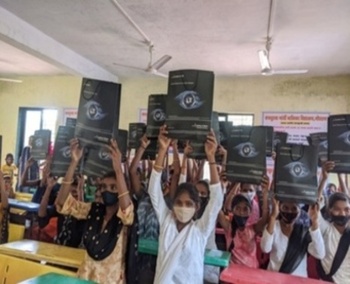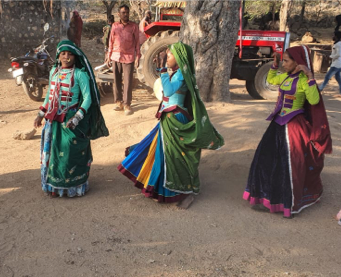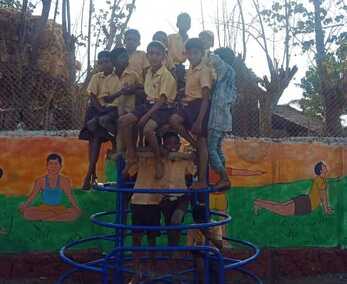Independence Day 2025: The Fight for Freedom Now Looks Like Light, Water, and Dignity

It’s not just about waving a flag or singing a patriotic song; it’s about the ability to drink clean water, study after sunset, and live with dignity. As India celebrates Independence Day in 2025, the conversation must move beyond the memory of freedom fighters to the millions still fighting for the most basic human rights. The true measure of a nation’s progress lies in whether its people can live without fear, without darkness, and disease.
In many parts of India, that battle isn’t over. A woman who walks three hours daily for water isn’t free. A child who squints under a kerosene lamp to finish homework isn’t free. A farmer who migrates to a city because his village has no electricity isn’t free. This Independence Day, let’s recognize a deeper truth: modern freedom in rural India begins with light, water, and dignity.
Light as Liberation
Electricity in villages does a lot more than just lighting up homes and streets, which in itself is a big deal. Doors open to opportunities that would have seemed like a far-off dream once. Absence of power means all activities end with the day. But with solar energy, children can study into the evening, and women can cook and work safely after dark. Light stretches time, giving families more hours of productivity, learning, and connection.
In Project Chirag-enabled villages, solar-powered lighting has changed the daily rhythm of life. From enabling children to read without straining their eyes to helping rural women launch micro-enterprises after sunset, light becomes more than a utility; it becomes a tool of empowerment. It reduces dependence on dangerous kerosene lamps. These lamps pollute indoor air and also cause burn injuries and respiratory problems. Electricity and clean water in villages aren’t luxuries; they’re fundamental to creating equal opportunities.
Moreover, powered homes are a stepping stone to powered communities. When schools, health centers, and community halls are electrified, the benefits ripple outward, strengthening the fabric of rural life.
Clean Water: The Foundation of Health and Dignity
There is still a lack of access to piped water in over 50% of rural households in India. Now, since that’s the case, ‘fetching water’ is an important activity, which means walking miles every single day with heavy vessels balanced on their heads. This responsibility, which by all means is a burden, is largely carried by women and girls. It takes away from them their crucial time and robs them of good health and opportunities. And even after hours of toil, the water they bring home often isn’t safe to drink.
Freedom through light and clean water means convenience and ease. Contaminated water leads to preventable diseases like cholera, typhoid, and diarrhea, which continue to kill thousands each year. Access to clean water can drastically reduce child mortality and improve nutrition, sanitation, and hygiene.
Project Chirag’s solar-powered water solutions eliminate this daily struggle. With solar pumps, villages can access safe drinking water directly, cutting down drudgery and health risks. For girls, it means more school attendance. For women, it means the chance to invest time in income-generating work or care.
The link between water access and sustainable rural development in India is undeniable. When villages are water-secure, agriculture thrives, migration reduces, and communities grow more resilient to climate change.



Rural Development and Independence: Rethinking What Progress Means
India’s development story has long been told through GDP numbers and urban skylines. But true rural development and independence require a shift in focus, from highways to hamlets, from metros to marginalised regions. Today, 65% of India’s population still lives in rural areas, and many of these communities remain cut off from basic services.
How is independence achieved in a true sense without including them? Freedom has indeed been achieved from colonial rule; it’s freedom from poverty, from inequality, and from invisibility that still needs to be worked for.
Development must be local, sustainable, and community-led. Project Chirag’s model of employing “Chirag Sanginis”, women leaders from within the village, to facilitate and maintain solar infrastructure is a powerful example. It builds leadership and accountability within the villagers.
Modern freedom in rural India must be participatory. When people are part of shaping their own progress, they protect it, sustain it, and pass it on.


The New Fight for Freedom: A National Responsibility
As we celebrate our 78th Independence Day, it’s time to expand our definition of what freedom means. For the urban middle class, independence might be about opportunity, expression, or mobility. But it means something entirely different for a large part of rural India. For them, the struggle is still about accessing the basics, light that doesn’t go out at night, water that’s safe to drink, and livelihoods that don’t vanish with the rains.
If India is to rise truly and equally, it cannot leave half its population in the shadows. Today, we must fight systemic neglect, climate vulnerability, and infrastructural injustice. The tools of this new freedom struggle are not guns and slogans, but solar panels, water filters, and empowered communities.
Organizations like Project Chirag are proving that transformation is possible, one village at a time. But it requires collaboration between governments, corporations, communities, and citizens. On this Independence Day, the call is clear: freedom through light and clean water is not a dream, it’s a duty.
From Symbolism to Substance: Project Chirag
As the tricolour flies high this 15th August, along with the celebration, there should be a zeal to understand what freedom really means. It’s important to remind oneself that a nation is free in the true sense if this freedom reaches every home. The future of India depends as much on its villages as it does on urban innovation hubs, giving all the more reason why the fight for electricity, light, water, and above all, dignity becomes non-negotiable for rural communities.
Because until every child can do homework under a safe light, until every woman can draw clean water without fear, until every village can stand tall with self-reliance, independence remains unfinished business.
Support rural development by doing your bit.


